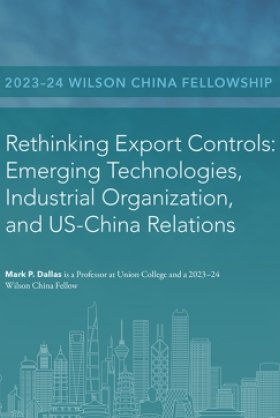Rethinking Export Controls: Emerging Technologies, Industrial Organization, and US-China Relations


For decades, US-China relations were characterized by deep interdependence producing mutual benefits through global value chains (GVCs). Today, geopolitical tensions over advanced technologies are undermining engagement and unwinding GVCs. At least since 2018, American policymakers have returned to a Cold War era-like strategy of leveraging export controls to degrade Chinese military capabilities by restricting Chinese access to American technologies. The central assumption is that American technological dominance in select specialized areas creates ‘chokepoints’ (measured by market share) that can be ‘weaponized’ towards American strategic ends. By contrast, critics doubt the effectiveness of export controls in achieving these goals based on two basic arguments: either Chinese firms will figure out ‘workarounds’ or China will ‘innovate’ their way through the controls. This paper argues that changes in global industrial organization (GVCs and ecosystems) raises issues for both supporters and critics of American export controls. On the one hand, new industrial organization raises questions about some core principles, measurements, and assessments of export controls. Wittingly or not, critics generally accept these same principles, measurements, and assessments, but come to a different conclusion. However, through the lens of organizational governance, this paper finds that American export controls are at risk of relying on ‘mirage’ chokepoints, inducing unintended consequences, and generating new trajectories of Chinese innovation, which could lead American policy interventions to become overly expansionary and less effective. America’s export control regime needs to adapt to the new industrial organization of GVCs and ecosystems.
Author

Associate Professor, Union College

Kissinger Institute on China and the United States
The Kissinger Institute works to ensure that China policy serves American long-term interests and is founded in understanding of historical and cultural factors in bilateral relations and in accurate assessment of the aspirations of China’s government and people. Read more

Explore More
Browse Insights & Analysis
360° View of How Southeast Asia Can Attract More FDI in Chips and AI




